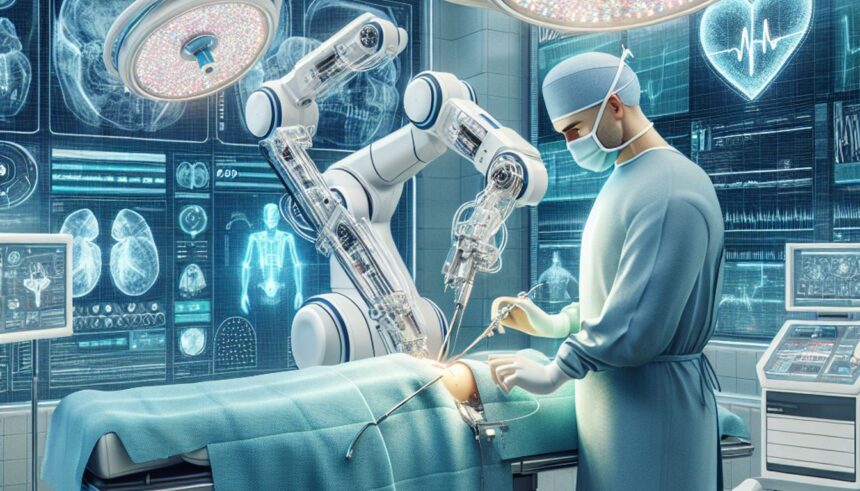The realm of healthcare is witnessing a revolutionary transformation, particularly through the integration of robotic surgery and AI advancements. These technologies are not just innovations but are reshaping the very fabric of medical treatment processes, improving patient outcomes significantly. This article delves into how these technologies are enhancing surgical precision and what this means for the future of healthcare.
The Role of Robotic Surgery in Modern Healthcare
Robotic surgery, a term once relegated to the realms of science fiction, is now a tangible reality, offering unprecedented accuracy in various surgical procedures. Utilizing sophisticated medical robotics, surgeons can perform complex surgeries with minimal incisions, reducing both recovery time and the risk of infection. This surgical method supports a range of procedures, from delicate neurological operations to complex cardiovascular surgeries, making previously high-risk operations safer and more accessible.
Advancements in AI and Surgical Assistance
Parallel to the developments in robotic systems, AI advancements have been crucial in enhancing surgical assistance. AI algorithms are now capable of analyzing large volumes of medical data to provide real-time insights, which aid surgeons in making more informed decisions during procedures. Furthermore, the emergence of generative AI is equipping these systems with the ability to learn from each surgery, thereby continuously improving their efficiency and safety. This symbiosis between human expertise and artificial intelligence is setting new standards in patient care.
Improving Patient Outcomes Through Enhanced Precision
One of the most significant benefits of robotic surgery is the enhancement of patient outcomes. By increasing surgical precision, reducing the likelihood of human error, and decreasing postoperative recovery times, patients experience better overall health results. Detailed surgical planning, aided by AI-driven models and simulations, ensures that every surgical procedure is as precise and effective as possible.
Generative AI: A New Frontier in Medical Robotics
The integration of generative AI into medical robotics represents a new frontier in healthcare. This technology not only assists in procedural planning but also adapts and learns from each surgeon’s techniques. Such capabilities ensure personalized and continually improving surgical assistance, which is tailored to the specific needs and challenges of each operation.
Economic Impact and Accessibility of Robotic Surgery
While the benefits of robotic surgery are clear, its economic impact and accessibility remain points of discussion. Initially, the high cost of these sophisticated machines may seem daunting; however, the long-term savings associated with shorter hospital stays, reduced complications, and quicker return to work provide a compelling economic argument. As technology advances and becomes more widespread, the costs are expected to decrease, making robotic surgery a more accessible option for more hospitals globally.
Case Studies: Success Stories Across the Globe
Around the world, several health institutions have successfully integrated robotic surgery and AI into their procedures. From leading hospitals in Bangalore and Mysore implementing these systems for complex surgeries, to research centers in the United States pioneering advanced robotic surgical techniques, the global healthcare community is increasingly recognizing the potential of these technologies.
Future Prospects: What Lies Ahead for Robotic Surgery?
Looking forward, the prospects of robotic surgery and AI in healthcare are boundlessly promising. With ongoing advancements, we anticipate even greater integration of AI, which could lead to fully autonomous surgical procedures in certain contexts. Moreover, the continuous improvement in AI advancements and medical robotics promises to further elevate the standards of patient care, making safer, quicker, and more effective surgeries the new norm in the medical field.
In conclusion, the transformative impact of robotic surgery and AI on patient outcomes cannot be overstated. As these technologies advance, they pave the way for safer, faster, and more effective medical treatments, heralding a new era in healthcare. It is an exciting time in the medical field as we stand on the brink of future innovations that will continue to revolutionize patient care.







